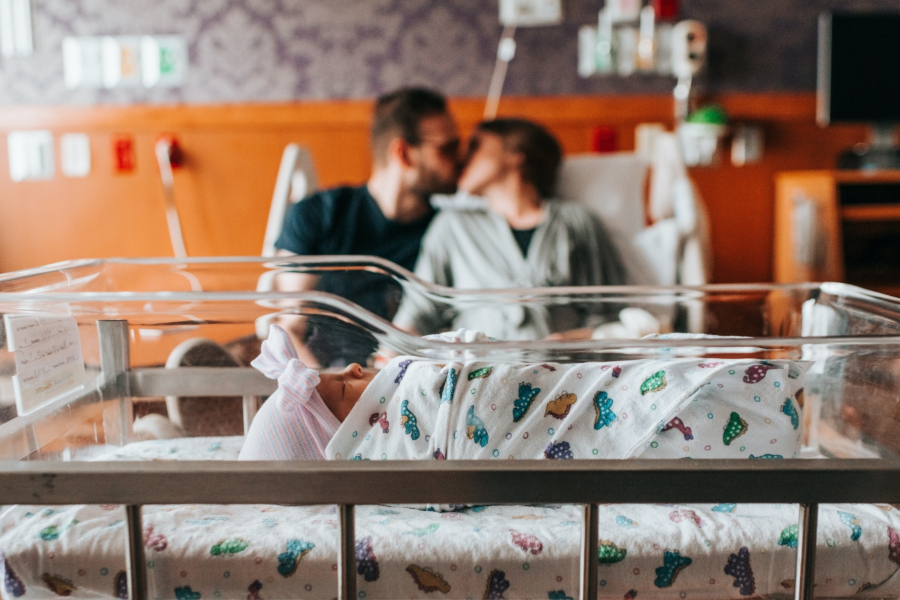Parents who are not in a relationship with each other but each want a family may agree to conceive a child together as co-parents. If both are single, your child will typically have a mother and a father, but if either of you is in a relationship then your child may have three or four parents. It is reasonably common for same-sex parents to build families through co-parenting, conceiving children who then have two mothers and either one or two fathers.
Multi-parent families can also be created where the parents are in a polyamorous relationship. This is another situation in which a child may be born with three or more parents sharing responsibility for the child, although in such cases it is more typical for the child to live with all their parents in one home rather than across several different homes.
Who are the legal parents of a child born in a co-parenting arrangement or multi parent family?
Under UK law a child can have no more than two legal parents, and the law dictates who these will be according to the circumstances of conception:
- The parent who gives birth will be the legal mother and must be recorded on the birth certificate as such.
- If conception takes place through intercourse, the biological father will be the legal father.
- If conception takes place through artificial insemination or IVF, then the position depends on the birth mother’s marital status. If the birth mother is married or in a civil partnership, their spouse will be the father or second legal parent. If they are not married then the biological father will be the legal father unless conception takes place at a UK licensed clinic and the birth mother’s partner is formally nominated to be the father or second legal parent instead.
Find out more about legal parenthood following assisted reproduction.
The birth certificate will reflect the position on legal parenthood, so the birth mother will be recorded as the ‘mother’ and typically either the biological father or the birth mother’s partner will be recorded as the ‘father’ or ‘parent’. Those named on the birth certificate will share parental responsibility – the right to be involved in decision-making about the child – and those who are not named will not have any formal legal status in respect of their child.
Can we secure legal parenthood for the other parents?
This means that very often one or more of the child’s parents do not have any formal legal status.
Adoption orders alter legal parenthood, but they are rarely used as a remedy for multi-parent families because they move rather than expand parenthood. It is not currently possible for a UK adoption order to be made in favour of more than two parents.
More than two people can, however, share parental responsibility (which is the right to make and be involved in decisions about a child’s care). The best way to achieve this will depend on the particular circumstances, but you may be able to secure parental responsibility for non-legal parents by signing a court form, or by making a court application.
In the meantime, it is also sensible for all involved to put in place a will to ensure that guardianship arrangements are covered if any of the parents dies, and to ensure that the child inherits from all his or her parents irrespective of whether they are legal parents.
Find out more about securing parental rights in ways other than adoption.
Should we put a written co-parenting agreement in place?
Co-parenting agreements are not legally binding under UK law, which means that they do not affect who the child’s legal parents are, and if there is a dispute between you at a later stage, the family court is not obliged to follow what the agreement says and it can order something different if it considers that to be in your child’s best interests.
Having said that, written agreements can be very helpful in setting strong foundations for successful co-parenting. They provide clear evidence of what you intended at the outset, which may carry weight in court if there is a dispute (and will at least prevent argument over what was agreed, which is a common feature of disputed cases). Even more importantly they help to avoid disputes from ever happening, by ensuring that you all start off with clarity and consensus, and by creating a solid framework you can all follow.
There are no fixed requirements for ‘formalising’ co-parenting agreement (they do not, for example, need to be witnessed by a solicitor). However, an agreement is likely to carry more weight in court if it is legally accurate and if you had legal advice before it was signed.
The UK’s leading conception lawyers
Find out more about how we support those creating families
Related articles

Legal parenthood after donor conception and assisted reproduction
Where children are conceived through artificial insemination or the transfer of an embryo, the Human Fertilisation and Embryology Act 2008 dictates…

Securing parental rights in ways other than adoption
Although under UK law a child can only have two legal parents, there is no limit on how many people can share parental responsibility. Parental responsibility gives you the…

UK law for stored eggs, sperm or embryos
The Human Fertilisation and Embryology Authority was set up in 1991 and comprises members who are clinicians, researchers or fertility/embryology professionals….
